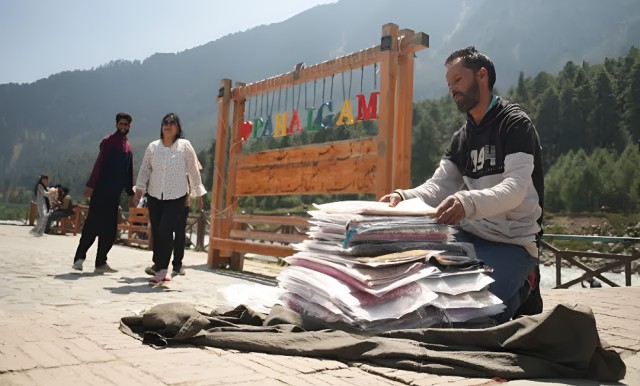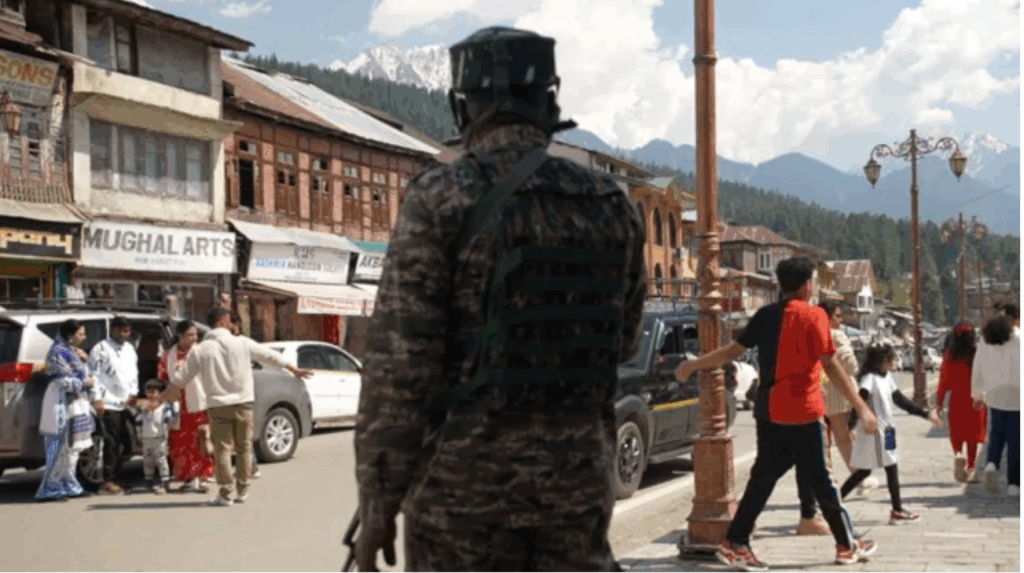
Some tourists decided to stay back in Pahalgam because flight tickets back home were expensive
A week after a brutal militant ambush near Pahalgam, the picturesque town in India-administered Kashmir is slowly recovering from shock. The attack claimed 26 lives, mostly tourists, near Baisaran — a meadow often referred to as the “Switzerland of India.”
A Town in Crisis
Pahalgam, once bustling with tourists, was left eerily quiet. Shops were closed, and hotels emptied. Panic swept through the town. Now, a few tourists are cautiously returning, but it will take time for things to fully return to normal.
On the day of the attack, militants opened fire without warning. The victims were mostly families and tourists seeking peace in the hills. This attack ranks among the deadliest in recent memory, sparking nationwide outrage and grief.
Growing Tensions Between India and Pakistan After Pahalgam Attack
The violence has deepened tensions between India and Pakistan. Both countries have exchanged retaliatory actions, including minor cross-border exchanges of fire. Kashmir remains a deeply disputed region, and the latest violence risks escalating regional conflicts.
Indian security forces have launched extensive search operations, detaining hundreds and destroying suspected militant hideouts. Meanwhile, the government has shut down over half the tourist sites in the region as a precaution.

Kashmir Tourism Industry at Risk
Kashmir’s tourism industry, a vital part of the local economy, now faces an uncertain future. Business owners are fearful of long-term financial losses. “There’s fear in every sale,” said Rafi Ahmed, a local shawl seller who has barely made any sales in recent days.
Despite the security risks, a few determined tourists have decided to stay. Akshay Solanki from Mumbai shared that although the situation was chaotic, his group decided to continue their trip as flight prices soared. Some visitors feel reassured by the presence of security forces and the support of locals.
Calls for Resilience
Bollywood actor Atul Kulkarni visited Pahalgam shortly after the attack. He urged people not to abandon the region, stating, "If militants want us to stay away, we must respond by visiting in greater numbers."
Politician Rafi Ahmed Meer also called on outsiders to remember how locals had responded with kindness after the attack. “We rushed to help, even picking up bodies,” he said.
Widespread Cancellations and Economic Concerns
Tour operators have reported mass cancellations. “Nearly 80–90% of bookings have been cancelled,” said Abhishek Sansare, a tour operator from Mumbai. Though some tourists have opted to stick to their plans, the uncertainty is palpable.
Additionally, there are concerns that the violence may delay development projects, including the opening of the world’s highest single-arch railway bridge, which was meant to connect Kashmir with the rest of India.
Investment in the region, which had begun to increase, is also at risk. "Business projects in logistics and transport are now on hold," said Ubair Shah, a cold storage facility owner in Pulwama.
Grief and Reflection
In a heartfelt speech in the Jammu and Kashmir assembly, Chief Minister Omar Abdullah paid tribute to the victims, reading out their names. He expressed deep regret to their families. Many of the victims were visiting Kashmir for the first time — only to meet tragic ends.
“What do you say to a child who watched their parent die? Or a bride who lost her husband days after their wedding?” Abdullah asked. "This attack has deeply scarred us."
While Pahalgam struggles with its grief, hope remains. The message from locals and visitors is clear: stand with Kashmir, and return to the region.















